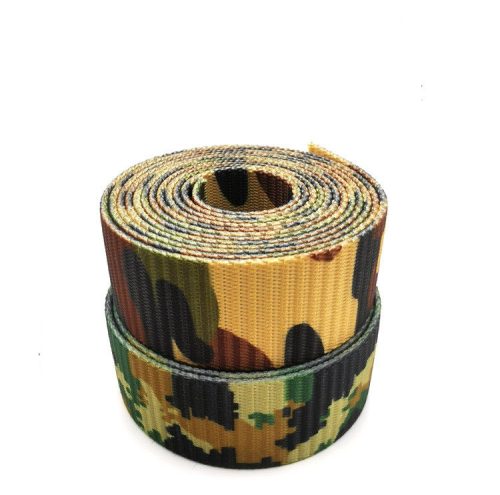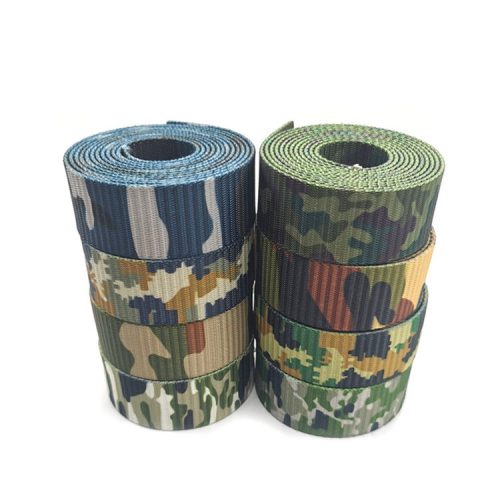Cotton webbing is indeed a staple material in the outdoor gear industry due to its unique combination of strength, durability, and versatility. Here’s why cotton webbing is commonly used in outdoor gear:
- Strength and Durability: Cotton webbing is known for its strong and sturdy nature, which makes it well-suited for handling heavy loads and withstanding the rigors of outdoor activities. This is crucial for outdoor gear that needs to endure various conditions.
- Resistance to Abrasion: Cotton webbing has good abrasion resistance, making it capable of withstanding friction and wear caused by rough surfaces, rocks, and other abrasive elements often encountered in outdoor environments.
- Weight-to-Strength Ratio: Cotton webbing offers a favorable weight-to-strength ratio, meaning it can provide significant strength without adding excessive weight to gear. This is essential for hikers, climbers, and other outdoor enthusiasts who need lightweight gear that still performs well.
- Versatility: Cotton webbing can be easily woven into different widths and designs, allowing for customization based on specific gear requirements. It can be used for straps, handles, bindings, and other components across various outdoor products.
- Compatibility with Hardware: Cotton webbing works well with various hardware components like buckles, clips, and adjusters, allowing for easy customization and adjustment of outdoor gear.
- Ease of Customization: Outdoor gear often needs to be customized for optimal fit and function. Cotton webbing can be easily cut, sewn, and adjusted to create straps, loops, and fastening mechanisms that meet the user’s needs.
- Dyeing and Aesthetic Customization: As mentioned earlier, cotton webbing can be dyed, painted, or otherwise customized for aesthetic purposes, allowing outdoor gear manufacturers to create distinctive designs and color schemes.
- Comfort: Cotton webbing can offer a comfortable feel against the skin, which is important for gear that comes into direct contact with the user, such as backpack straps or harnesses.
- Eco-Friendly Options: For those who prioritize sustainability, organic cotton webbing can be sourced, providing an environmentally friendly option for outdoor gear.
- Affordability: Cotton webbing is generally more affordable compared to some synthetic alternatives, making it a cost-effective choice for both manufacturers and consumers.
Due to these attributes, cotton webbing finds its way into various outdoor gear products such as backpacks, tents, hammocks, climbing harnesses, camping gear, and more. While synthetic materials like nylon and polyester also have their place in the outdoor gear industry, cotton webbing continues to hold its ground, especially for those who value its natural feel and look, as well as its compatibility with certain customization and design techniques.


